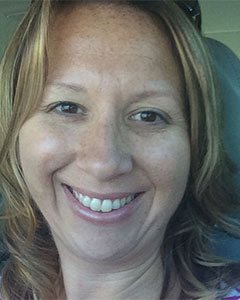Three Tips for Tough Talks with Your Kids
Illness, death or tragedies in the news: what should parents say?
Children and families can encounter many difficult times as they are growing together. As a Child Life Specialist, I have spent many hours helping guide parents through these rough waters as they try to find the “right” and truthful words to say. It is not an easy or fun task for anyone, but these critical conversations can be so important to a child’s understanding of the situation as they lay the foundation for dealing with any future difficulties that may occur throughout their lives.
I am listing below the three steps that I use as a professional when preparing to talk to a child about a challenging situation such as a death. However, these three steps can be used for any difficult conversation that you are preparing to have:
1. Ask, “What do you know?”
This is the first question I ask a child. Making the assumption that they don’t know anything, haven’t heard anything or even act like they don’t know what’s going on is usually not accurate. Children are sponges and absorb the environment around them. They take their cues from the emotions they see and feel around them, too. No words may have been spoken about a difficult situation, but if they see people around them crying, they know something bad is happening and will draw their own conclusions if no one tells them the truth. Children have often surprised me with their answers—sometimes they are completely off-base and that allows me time to appropriately correct the misconceptions or they are right on the money and know way more than anyone thinks or wants to admit.
2. Keep it simple, honest and concrete
Once I have gotten an assessment of what they know, I begin “the talk.” My first rule is that everything I say is appropriate for their age and is not confusing for the child. This can often be difficult to do, but simple and truthful is often the best. Children will ask questions and want to know more information, and that’s okay. But, I always make sure to keep the words and phrases concrete (for example, actually saying the words “died,” “dying,” or “death” instead of “passed away,” “went to sleep,” or “God needed them”). Using concrete words makes it easier to put context around it.
Many children often receive this news with appropriate feelings of sadness, frustration, guilt, fear or even anger—just like grown-ups. If this happens, allow them room to ask questions and express their feelings. On the other hand, some simply say “Okay” and then run off to play, making you wonder if they heard or understood you. You may feel relieved that the emotional breakdown you were expecting didn’t happen and that the conversation is over. Odds are, though, that the child does understand you but needs to go process it in their own way and with things that they know, which is through play. If this response happens, allow it. Just remember that grief is different for everyone, and the child’s may not look like your own, and that’s all right.
3. Ask, “So…how are you doing?”
After this type of conversation, follow up is important. Children will typically find their way back to you with their questions, and it may not be during the times you expect them to ask or with the frequency you would have predicted. These conversations or questions will likely need to be discussed repeatedly as the child works their way through the emotions and understands more.
For some kids, it can be akin to pulling teeth to get them to talk about how they feel. Not all children like to talk about their feelings (again, like some adults). Providing them with a different outlet, such as writing, art, or even safe physical activities, can be very helpful. Some children also may find it easier to discuss their feelings with someone who is not close to the situation, such as a counselor. Regardless, making sure that the child feels comfortable to continue to discuss the topic with you is important, as is encouraging them to express their feelings in a constructive and positive way.
I have never met a parent who looks forward to these conversations. It certainly isn’t easy, but many times, parents simply need the tools of what to say, how to say it and what to expect from their children.
It is important to find the words and support that work best for your family and allows you to move through a time of challenge together.







